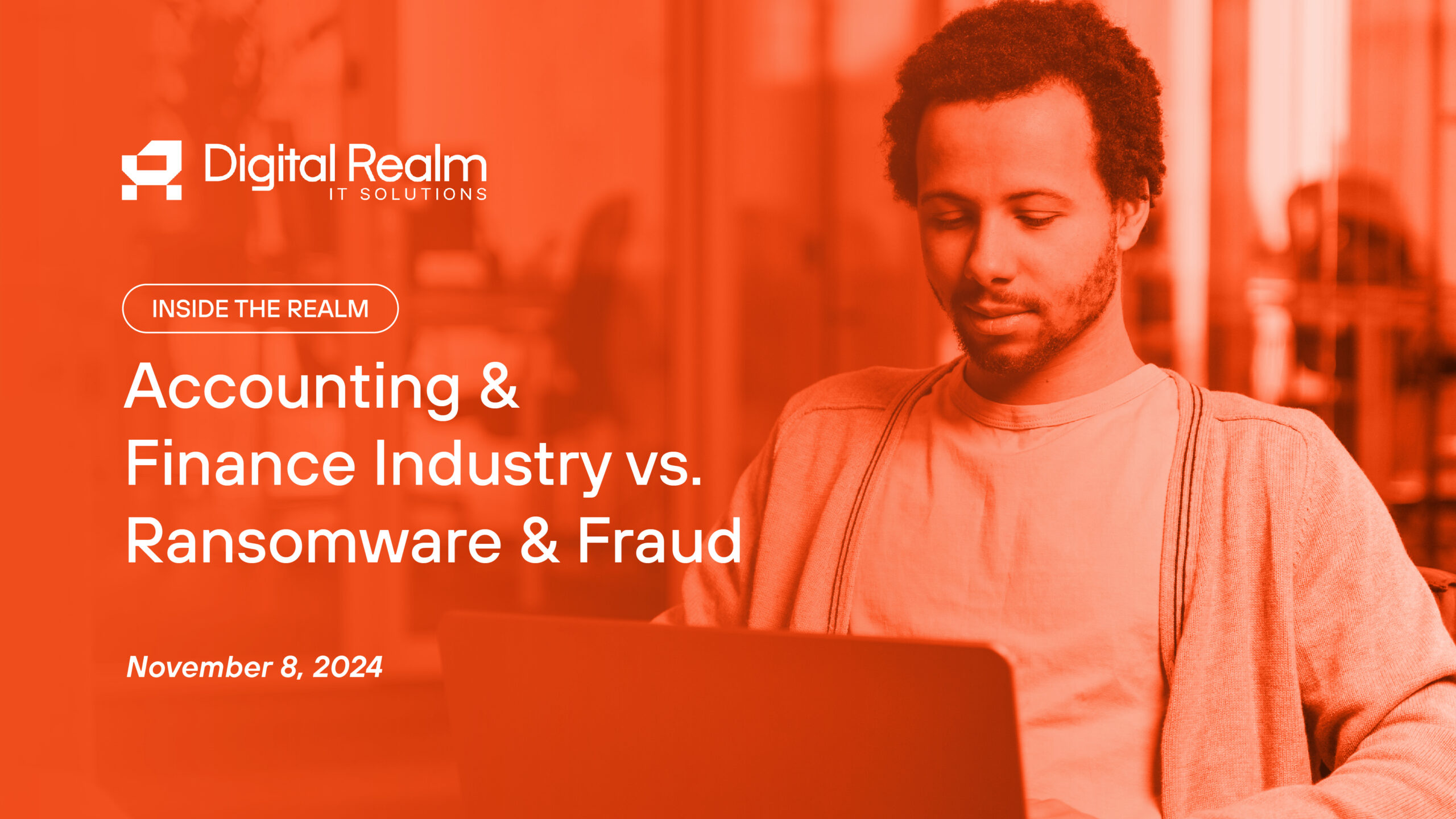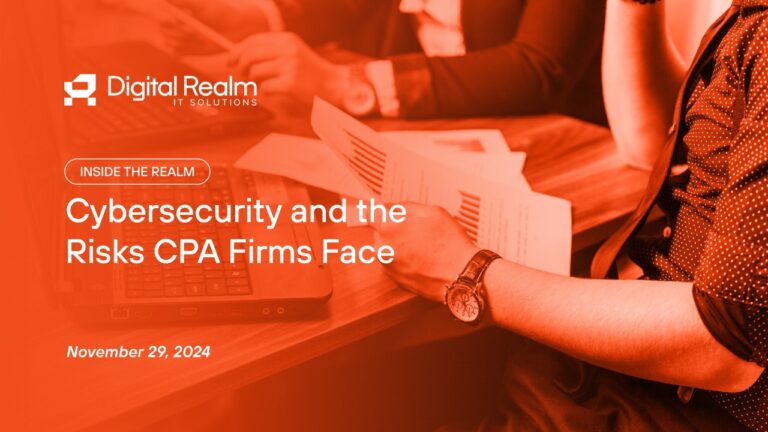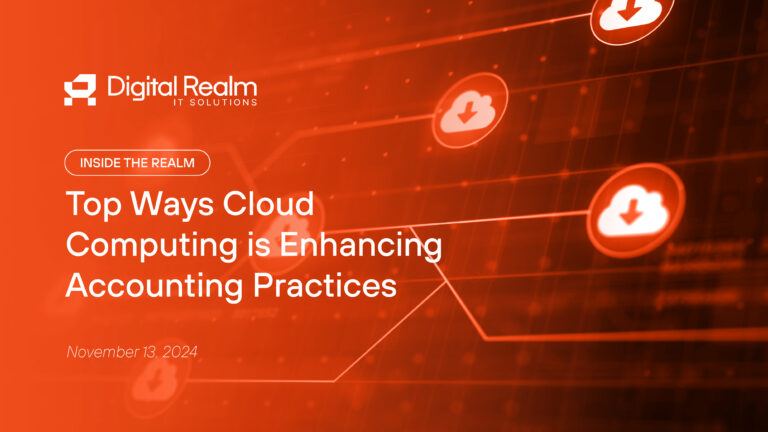Accounting & Finance Industry vs. Ransomware and Fraud
Money makes the world go round—and thieves circle it too. It may be an old saying, but even in today’s digital age, it still holds true.
It goes without saying that industries handling valuable assets and sensitive information are prime targets for cyberattacks. At the forefront are financial institutions like banks and accounting firms.
Ransomware and fraudulent wire transfers are two of the most common schemes used by cybercriminals. As these threats increase, your firm must be fully prepared to defend against them.
Beware of ransomware.
Ransomware is a type of software that hackers use to lock you out of your data and files. They hold your access hostage until you pay a ransom. Ransomware is typically installed to your device through a phishing attack. Your device can be compromised after clicking on a malicious link or opening an infected file or attachment.

Accounting firms are especially susceptible to ransomware attacks because of the high volume of sensitive data they handle. Adequate cybersecurity measures and employee awareness trainings should always be in place to reduce your vulnerability and boost your awareness.
Be mindful when executing wire transfers.
Aside from phishing and ransomware attacks, hackers also exploit accounting firms’ customer service focus by impersonating trusted contacts to request fraudulent wire transfers.
Identity theft is the primary tactic that hackers use to execute this attack. Hackers gain access to a client’s email and use it to request employees to transfer large sums of money, often disguised as an invoice that appears to need payment from the client. Another commonly used tactic is spoofing, where hackers disguise their email address to mimic those of executives or clients, so they can then demand for urgent transfers.

Cybercriminals often exploit firms that rely solely on email as a communication protocol. Multi-layered security processes should be in place for wire transfers to reduce the risk of attacks.
What can you do?
To keep your firm secured, aim for a multi-layered approach to cybersecurity.
Multi-verification
Implement multi-verification practices for every financial transaction, especially when dealing with wire transfers requested via email. Always perform an additional verification step before proceeding with the transaction. Call the client via a phone number that is known to you. For larger sums of money, request for them to appear in person if possible.
Training
Regularly train your employees regarding cybersecurity to ensure they are updated with the latest tactics cybercriminals use. Send out cyber attack simulations as a test to find gaps in cybersecurity awareness.
Protocols
Regularly review protocols to ensure that security remains at the forefront of every process. Implement strict guidelines specially on all online transactions.
IT Help
Your IT team does more than deploy firewalls and updates – they’re your security mentors. Through targeted training and clear guidelines, they empower every employee to understand and actively participate in protecting your organization. By translating complex security into practical actions, they build a security-conscious culture where everyone plays their part.
Continuous cybersecurity improvements
Kaizen is a philosophy that started in the manufacturing industry in Japan. Simply put, it is the idea of having everyone who is involved in the business continuously striving for improvement every day. Foster a culture where employees look out for gaps in your security measures and feel comfortable speaking up to help mitigate these vulnerabilities.
When handling valuable assets and sensitive information, complacency has no place. Successful attacks do not only cause financial but reputation damage as well.
If you need help securing your systems or want to learn more about how you can protect your firm, contact us and lets chat!





